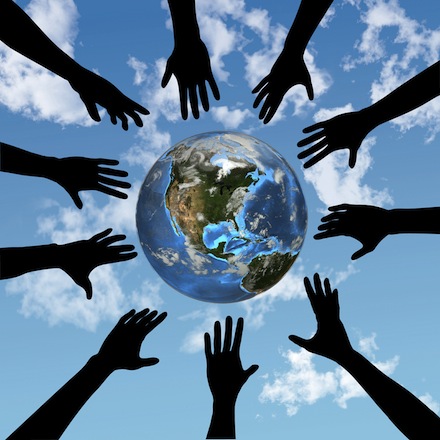A curiously and spuriously Western idea has crept into academia, and from there, into civil society and politics. Having ruthlessly dominated and colonized Africa and Asia under the guise of universal human values, Western intellectuals now proclaim that there is no such thing as human universality.
Information and people cross increasingly porous borders in an irrefutably global society. That alone disproves the claim of non-universality. The contention of cultural primacy conceals an underlying intention to preserve “diversity” at the cost of reality.

Superficial diversity is not diversity at all. By adhering to guilt-ridden concepts of specious diversity and pluralism, academics and activists are actually promoting the very homogeneity and domination they’re allegedly allaying.
The geographic isolation of peoples no longer exists. Superimposing unimportant differences, while refusing to reflect on true universalities, reduces genuine cultural diversity and harms the human prospect.
The paradox is that by deeply considering and having insight into patterns and themes that are universal, we actually promote difference and diversity. That’s because diversity flows from wholeness, not separateness.
The geographical individuation of cultures since “fully modern humans” have walked the earth is a relatively recent phenomenon. The consensus view in paleo-anthropology is that all eight billion of humans that presently exist on this planet are descended from a miniscule stock of a few thousand emergent humans in East Africa about 100,000 years ago with the cognitive revolution.
That means superficial differences in skin color and facial structure, much less culture and tradition, developed relatively recently, over a period of some tens of thousands of years.
The defining feature of Homo sapiens is that all animals except humans live within an ecological niche. Humans don’t have a niche. Humans inhabit the entire earth, which we’re now destroying apace.
Beyond that universality, what else is universal? The conventional wisdom among academic philosophers is that “it is lack, incompleteness, that is universal.” That’s false on the face of it, since though few of us are complete human beings, all of us have the capacity for inward completion.
The claim of non-universality is implicitly a claim that there is no such thing as human nature. The claim of non-universality asserts that human emotions and tendencies (such as our propensity for self-centeredness on one hand, and our inclination toward kindness on the other) are entirely learned behaviors.
An annoying habit of non-universalists is resorting to the latest phrenology-like fad, neuroscience. The fashionable neuroscientific mentality purports to explain everything from altruism to sociopathic behavior by “how we’re wired.”
Yet they defeat their own argument by an existential contradiction, since if human behavior is rooted in our shared genetic, neurological substrate, then how can they argue against universality?
The entire position of non-universality is ridiculous, without any serious basis in science or philosophy. We are all human, and though there are many superficial differences between people and peoples, the underlying commonality of our humanness is what gives us the capacity to understand and relate to each other, irrespective of language, culture and tradition.
That isn’t to minimize historical realities such as colonialism. Intellectuals are trying to whitewash the past by rejecting all claims to universality. To be sure, colonialism continues to cast a dark shadow in many places in the present. But it’s foolish and futile to try to flip the script and decry any and all universal philosophies and projects.
The perspectives of lived histories and must be placed in the context of the imperatives of the present global ecological, economic, social and political crisis. Let’s take tribalism for example.
Humans have identified with particular groups for security, if not survival, since the beginning of man.
The underlying psychological pattern, emotionally held, has not ‘evolved’ with civilization into a communitarian spirit, whether locally, regionally or globally. We’re still the same tribal creatures.
The Berlin Wall fell 30 years ago this month. But the majority of East Germans, who are labeled ‘losers’ by the West Germans that absorbed them after the fall of communism, still see themselves as East Germans.
The remedy the right-wing Alternative For Germany Party proposes is a mix of isolation and nationalism, with a strong appeal to notions of identity. That’s become a pathological worldwide pattern.
Identifying with ‘my tribe’ is a universal tendency. How is it to be radically changed in this de facto global society?
On the individual level, the observer, in some form, is universal. And the observer lies at the root of human division and fragmentation.

A radical shift in consciousness occurs when passive observation, which includes the observer but does not react judgmentally from it, gathers unwilled attention, which in turn quiets the entire movement of thought.
Symbolic thought is the ultimate human universal. When we attain the silence of being that comes with attentive insight into thought, we step out of the polluted stream of human consciousness into the cleansing river of unconditioned consciousness.
That allows the increasingly urgent, universal transition from humans to human beings.
Martin LeFevre
Lefevremartin77 at gmail.com
No comments:
Post a Comment